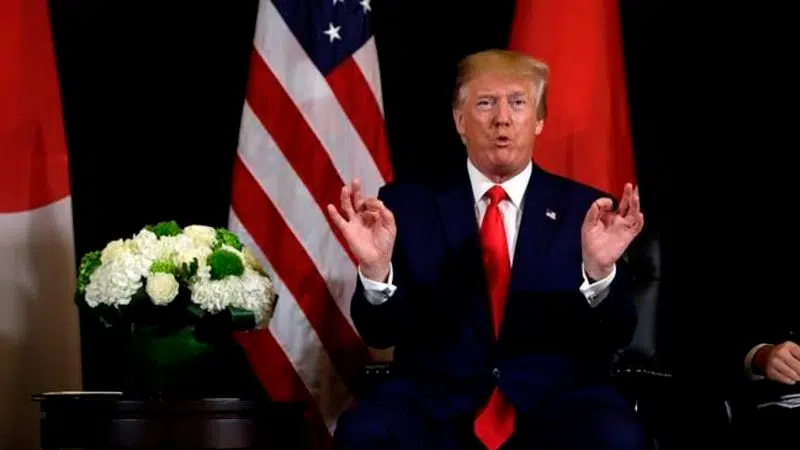
Trump: US, Japan agree on 1st stage of new trade agreement
The U.S. and Japan on Wednesday signed a limited trade deal that will eliminate tariffs and expand market access on farm, industrial and digital products. But the deal does not address autos, a key sticking point during months of contentious negotiations, and President Donald Trump indicated the two countries were still working on a broader agreement.
Trump and Japanese Prime Minister Shinzo Abe signed the deal on the sidelines of the U.N. General Assembly. Trump called it the “first stage of a phenomenal new trade agreement” and described it as “outlining the significant steps we’re taking toward a fair and reciprocal trade agreement.”
“This is a big chunk, but in the fairly near future we’re going to be having a lot more comprehensive deals signed with Japan,” Trump said.
Abe said the agreement is good for both countries.


